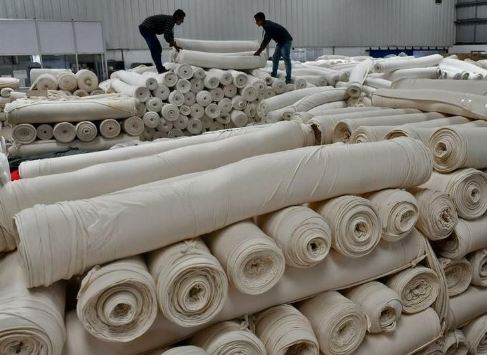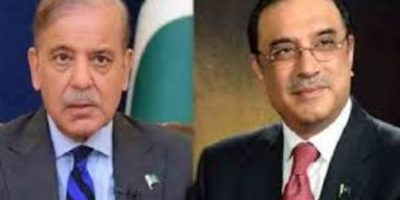Value-added textile exporters term gas tariff hike disastrous for export

ISLAMABAD, OCT 30 (DNA) — ECC’s proposed exorbitant hike of 86.5% escalating existing tariff from Rs 1100 mmbtu to Rs 2050 mmbtufor export-industries is highly unjust and unwise which will sabotage the value-added textile exports.
The textile-export industries were battling hard amid economic uncertainty and global slowdown to sustain and survive, nevertheless, the proposed hike in gas tariff will push the export industries to the verge of closure creating new additional financial mess, further decline in export and massive layoffs. Gravity of situation demands prudent decisions, to support businesses to incentivize rather penalize, to ultimately revive economy.
The Government’s intention to control circular debt is appreciable, however, such initiatives and decisions should be taken after deep thoughts considering that to favouring and addressing one issue must not economically and financially disturb other factor having impact on national economy and export. To save two Government’s owned companies (SSGC & SNGP) by escalating gas tariffs on the cost of entire industry is highly deplorable.
It will be highly detrimental for the sustainability and survival of industries. To end the circular debt to two companies, in this way, will create another circular debt for industries. Priorities to supply gas should be set on merit and fairness. Subsidy be given to deserving and underprivileged only not across the entire domestic sector which besides poor covers all the elite, affluent and privileged class as well.
The indigenous gas reserves are fast depleting with major consumption in unproductive sectors. It is also a matter of concern that on one side some industries are exporting indigenous gas without value-addition and on other side the Government is importing RLNG. This precious resource must be spent on productive industrial use only. This was stated by Muhammad Jawed Bilwani, Chief Coordinator, Value-Added Textile Exporters Associations.
Jawed Bilwani stated that the Value-Added Textile Exporters have rejected and condemned the exorbitant hike in gas tariff proposed by ECC and it is not acceptable. In the proposed recommendations of tariff hike, those industries have been favoured who are exporting gas without value-addition.
The Government should consider to evolve some mechanism and do some homework by checking and examining the high profit making industries going through their balance sheets and impose such high tariffs to those industries which can sustain and afford such exorbitant hike.Imprudently again priority has been again given to domestic consumers and burdening the industry through cross-subsidy. Why the affluent class in domestic sector has been given this subsidy.
The poor and underprivileged who deserve such subsidy don’t have their proper kitchen and even houses. The said subsidy should only be given to domestic consumers having 60 Square-Yards house or plots only. This subsidy given to domestic sector on the cost of industries must end. In the region and developed countries gas is supplied in cylinders while in Pakistan it is supplied through pipelines which is the main cause of UFG and gas theft.Similarly, fertilizer sector has also been unnecessarily favoured as the trickle down effect has never been passed to the farmers.
Such hike in gas tariff is suitable and viable for only those industries who can pass on the effect and hike impact to end-consumer. In the case of export-industries such impact cannot be passed on to the consumers. Energy Minister in his statement has questioned as to why export has not increased when gas tariff was Rs 1100 mmbtu? Answer is simple: appropriate gas pressure was never provided on which industries could smoothly operate.
There are two weekly holidays for gas. Five days in a week gas was supplied but without required pressure and quantum on which the industry cannot operate with full capacity. In every 24 hours, there were gas pressure problems for 16 to 17 hours. Industries could operate only for 7 to 8 hours at night. In Karachi, there are some areas in industrial zones where required gas pressure is not available throughout the year. How can we achieve a milestone in export under such prevailing situation and circumstances?
Jawed Bilwani voiced that gas tariff for export-oriented industries has been raised upward by 86.5% to Rs2050 per mmbtu while for general industries, it has been enhanced by 117 percent to Rs2600 per mmbtu. Moreover, 10% will be further added in gas tariff as blended cost of RLNG, which would take gas tariff for export-oriented industries to around Rs2300 per mmbtu which will adversely affect the Pakistan’s exports by rendering our value-added textile goods uncompetitive in the world markets. He lamented that rates recommended by OGRA were much lower than the ECC recommended rates.
Bilwani expressed concern that in value-added textile industries, boiler steam rates are higher than biomass. In Karachi, majority of industrial units are vertical have adequate land and space issues. Due to such limitations the industrial units are unable to opt for biomass. He also conveyed his concern over the inefficiency of utility companies to control UFG. In Bangladesh UFG is 2% only while in Pakistan it is 13% to 14%.
Why the responsible departments have not controlled the UFG in Pakistan? Should not the concerned be punished for this criminal negligence? It appears that political elements and political motives are behind this factor. All the past Governments are responsible for the losses and ever-increasing circular debts in gas companies. Their political ulterior motives have brought these companies to this alarming stage. Should not such politics influenced the two gas companies they would be earning profits with self-sustainability.
Bilwani expressed his concern that the cost of manufacturing for export-industries has gone highest in the region whereby equal level playing field is lost. Under such adverse circumstances, the industries in Karachi would be unable to operate for export production with such exorbitant gas tariffs, hence, the policymakers must realize the gravity of the situation and shun ECC’s decision so that the industries and the economy could be saved from plunging into further crises and reaching to a point of no return.
In this scenario, the industries in Karachi would be the greatest sufferers as hike in gas tariffs would put their survival at stake in addition to threatening 54 percent of country’s exports being done by the business community of Karachi alone.
The general industries are suppliers of semi-finished goods to exporters and they are already burdened with 82 percent increase in the cost of electricity and now the upsurge in gas tariff would lead to closure of 90 percent of allied industries supplying and linked with export-industries, resulting in triggering massive unemployment and rise in imports.
Bilwani requested the Prime Minister to intervene in the matter and call the stakeholders meeting for due diligence to address the matter appropriately in the national interest. — DNA
Related News

Lahore seminar links Prophet’s “P.B.U.H” life with national cohesion goals
ISLAMABAD/LAHORE, FEB 21 /DNA/ – The Higher Education Commission (HEC), in collaboration with the MinistryRead More

President, PM strongly condemn terrorist attack on security forces in Bannu
ISLAMABAD, Feb 21 (DNA): President Asif Ali Zardari and Prime Minister Muhammad Shehbaz Sharif, Saturday,Read More


Comments are Closed